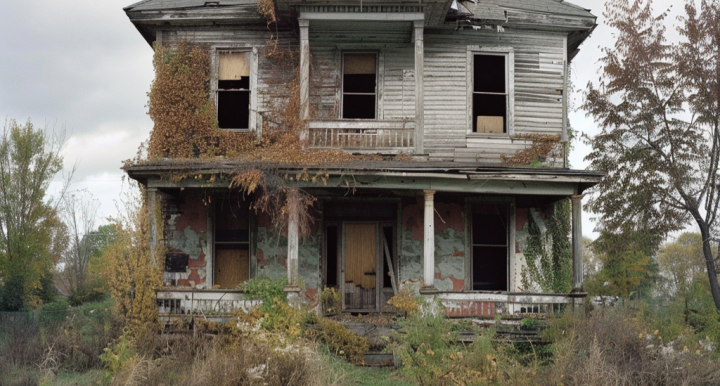What Are Abandoned Houses?
Abandoned houses are properties that have been deserted by their owners and left without maintenance or care for an extended period. These homes can be found in urban, suburban, and rural areas, often resulting from economic downturns, migration, or legal issues.
Potential Uses for Abandoned Houses
- Restoration Projects: Many see the potential in restoring abandoned houses to their former glory. This can be a rewarding project for those interested in historical preservation or real estate investment.
- Affordable Housing: Renovating abandoned houses can provide affordable housing options in areas where housing costs are high.
- Commercial Ventures: Some abandoned properties can be transformed into businesses, such as bed and breakfasts, restaurants, or boutique shops.
- Community Projects: These houses can be repurposed for community centers, art spaces, or non-profit organization headquarters.
How to Acquire Abandoned Houses
- Research and Identify: Start by researching areas with a high number of abandoned properties. Real estate websites, local government offices, and community organizations can provide leads.
- Property Investigation: Once you identify a potential property, investigate its history, current ownership, and any legal issues. This may involve checking public records, contacting local authorities, or speaking with neighbors.
- Contact the Owner: If the property is still owned, try to contact the owner to discuss a potential purchase. If the owner is deceased or cannot be located, the property might be available through an estate sale or public auction.
- Government Programs: Some local governments offer programs to sell abandoned properties at reduced prices to encourage redevelopment. Check for such initiatives in your area.
- Legal Considerations: Work with a real estate attorney to navigate the legal complexities of acquiring an abandoned house, including title searches and clearing any liens or encumbrances.
Challenges of Dealing with Abandoned Houses
- Structural Damage: Abandoned houses often suffer from neglect, leading to significant structural issues such as foundation problems, roof damage, and mold.
- Vandalism and Theft: These properties can be targets for vandalism and theft, requiring additional security measures during the restoration process.
- Zoning and Permits: Restoring an abandoned house may involve dealing with zoning laws, building codes, and obtaining the necessary permits, which can be time-consuming and costly.
- Financial Risk: The cost of purchasing and renovating an abandoned house can be substantial. It's essential to conduct a thorough financial analysis and have a contingency budget.
Conclusion
Abandoned houses present unique opportunities and challenges. Whether you're interested in restoration, affordable housing, or community projects, these properties can be transformed with vision, effort, and investment. However, it's crucial to approach such ventures with careful planning, legal guidance, and a realistic understanding of the potential risks and rewards. By doing so, you can breathe new life into these forgotten structures and contribute to revitalizing neighborhoods.
